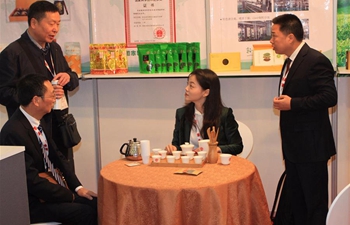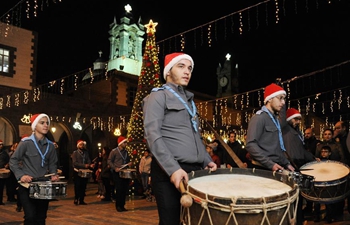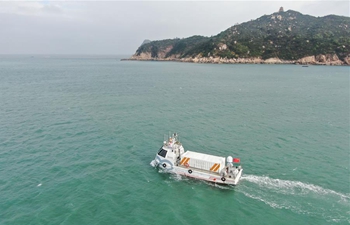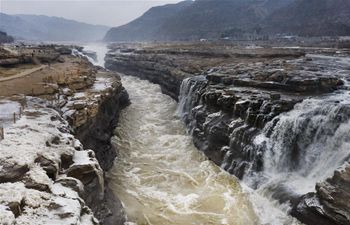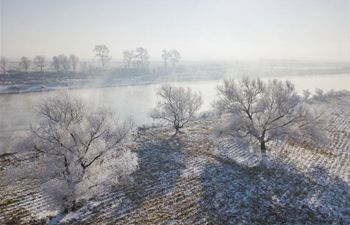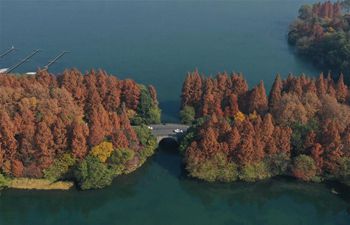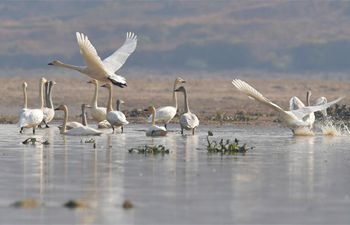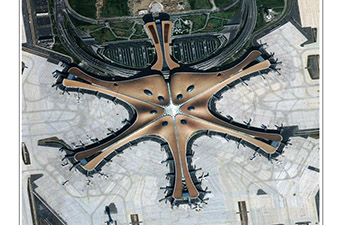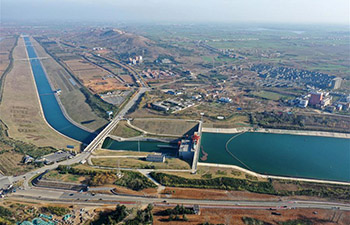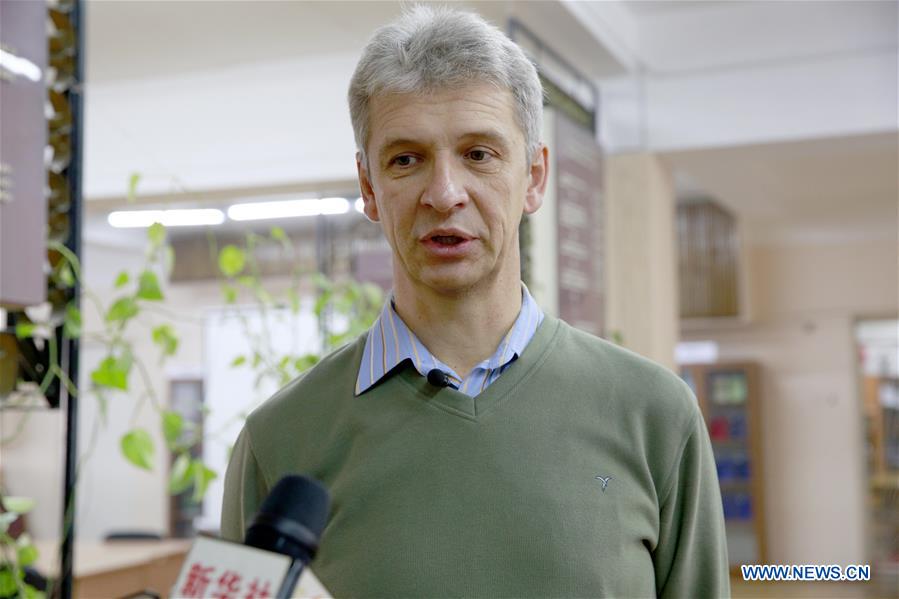
Valery Kolchenko, a senior researcher and an archaeologist of Institute of History, Archaeology and Ethnology of the Kyrgyz Academy of Sciences, receives an interview with Xinhua in Bishkek, capital of Kyrgyzstan, Nov. 29, 2019. The close archaeological cooperation between Kyrgyzstan and China has yielded encouraging results, and there is great potential for bilateral cooperation in this field, he said. (Photo by Roman/Xinhua)
BISHKEK, Dec. 16 (Xinhua) -- The close archaeological cooperation between Kyrgyzstan and China has yielded encouraging results, and there is great potential for bilateral cooperation in this field, a Kyrgyz archaeologist has said.
Valery Kolchenko, a senior researcher and an archaeologist of Institute of History, Archaeology and Ethnology of the Kyrgyz Academy of Sciences, told Xinhua in a recent interview of the archaeological cooperation between scientists from both countries and progress and achievements in archaeological work.
Kolchenko said that researchers of the Kyrgyz Academy of Sciences and their Chinese colleagues have conducted joint archaeological surveys, excavations and studies on some sites in Kyrgyzstan.
A cooperation agreement was signed with China's Shaanxi Provincial Institute of Archaeology to carry out joint excavations and research on the Krasnaya Rechka archeological site, he said.
Krasnaya Rechka village, located on the outskirts of Kant town in northern Chui Oblast, is an important ancient site in the Chu river valley. During the 8th to the 12th century, the site witnessed the development of the ancient Silk Road.
The Kyrgyz archeologist noted that a new cooperation agreement will be signed with the Chinese side after the completion of the first phase of the joint archaeological work at the Krasnaya Rechka site.
"The details of the agreement are being worked out, and we will continue to conduct joint archaeological work at the site for the next three to five years," he added.
Some important sites in Kyrgyzstan, including the Chu river valley, can provide irreplaceable research value for the study of Turkic culture, medieval cities and the ancient Silk Road, he added.
When answering a question about the ruins of the ancient city of Suyab outside of Tokmok town, east of the Kyrgyz capital city Bishkek, which have become a "hotspot" of archaeological research in recent years, Kolchenko said that according to some historical records, Suyab was the birthplace of Li Bai, a great poet in China's Tang Dynasty.
While some scholars consider Jiangyou city of China's Sichuan Province to be Li's hometown, Kolchenko agrees with others that Suyab was Li's birthplace.
Several experts and scholars are currently interested in studying the Suyab archeological site. "Now, a lot of people want to see that street, that house where Li Bai (has) lived and grown up, (and) the streets where he played as a little boy," he noted.
He explained that it won't happen very soon. The upper layer belongs to the 11th to the 12th century, and in order to get Li's house three to four layers must be removed.
"But it would be very meaningful if we could finally find the home of the great Chinese poet Li Bai," the archeologist added.
